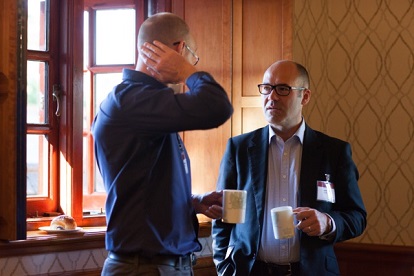Trust and satisfaction are key factors determining the difference between ‘good’ and ‘great’ advice among wealth management clients. The successful future adviser will harness technology effectively to enhance their existing proposition while differentiating themselves in the areas of holistic financial planning and behavioural coaching.
Headlines
- A ‘perception gap’ exists between what advisers say they provide and what clients feel they deliver as a service.
- A majority of clients feel they receive ‘off the shelf’ solutions that are undifferentiated in nature.
- Immediate competition will continue to come from human advisers who harness digital solutions as part of a hybrid business model.
- Early adopters of robo-advice solutions show greater demand for holistic financial planning and behavioural coaching than other client segments.
- Robo-advisers have a competitive advantage in technical areas such as portfolio construction and asset allocation.
Key themes
The session opened with debate around a ‘perception gap’ that appears to exist between what advisers say they provide and what clients feel they are receiving. Recent research points to a weakness in how UK advisers communicate their value in the things that matter most to mass affluent clients. One hypothesis is that advisers have lost the ‘perception of effort’ by streamlining several processes to ease the potential burden on clients. A majority of clients also feel that the services they receive are ‘off the shelf’ solutions, which points to a struggle in advisers differentiating their value proposition.
Risk profiling services showed the largest perception gap between adviser provision and the perceived delivery of this service by clients. All delegates acknowledged that advisers are obligated to conduct risk profiling under FCA suitability requirements although each firm has their own method of service delivery. It was noted that advisers are hesitant to go through exact details of how much a client could lose as part of a risk profiling process and prefer to spend more time discussing other subjects. Clients also increasingly self-evaluate their own risk profile through online questionnaires that are commonly used by robo-advice solutions.
However, the ‘rise of the robos’ is unlikely to displace all human elements of the advice process any time soon. Human advisers are vital for helping clients think through trade-offs of different goals as it is unlikely they will be able to achieve all of them. Moreover, a human adviser is much more accountable and effective for ensuring clients act rationally in terms of financial goals than any ‘nudges’ a digital platform can provide.
All delegates acknowledged that there is an emotional process involved when clients discuss life goals such as whether to retire early or work longer to buy a holiday home. It is extremely difficult for robo-advisers to show the emotional intelligence, or EQ, when dealing with the nuances of what clients are feeling with regards to significant life decisions:
“When the chips are down, you want someone you can actually talk to.”
Several delegates noted that many younger clients who currently use robo-advice solutions will want human advice as they reach important milestones in their financial lives. Many delegates also highlighted that robo-advisers have never had to operate in a bear market when clients typically look to human advisers for assurance. Indeed, advisers should not compete with robo-advisers in areas where digital solutions have a competitive advantage, such as asset allocation and portfolio construction. The uniquely human elements will instead allow advisers to charge more than the standard 40bps a client can expect to pay for portfolio construction from robo-adviser solutions. Research suggests that early adopters of robo-advice show greater demand for holistic financial planning and behavioural coaching than other client segments.
Delegates agreed that the time is now for advisers to start building these behavioural skills. The ‘best in class’ future adviser will need both technical and softer relationship management skills to be successful against potential disruptors.
Several delegates observed that the wealth industry previously divided workforces in a binary manner into groups that either ‘created’ or ‘sold’ products. Although this ethos is no longer the norm, delegates acknowledged that some advisers continue to give ‘bad advice’ to clients and reiterated the importance of creating a positive culture in an advice firm.
The difference between ’good’ and ‘great’ advice can be understood through the trust and satisfaction scores that clients give their advisers. One common assumption is that trust forms the foundation of an adviser-client relationship with satisfaction subsequently determined by this level of trust. However, recent research suggests that trust and satisfaction go hand-in-hand with the same underlying mechanics driving both of these metrics. Advisers with the highest trust and satisfaction scores demonstrated excellence in knowing how to communicate their knowledge and being able to create tailored financial plans for clients.
There is also evidence to suggest a significant pay-off for advisers who provide ‘great’ advice to their clients. Advisers who scored highly in both trust and satisfaction held a larger share of wallet with their clients than advisers who posted average scores for these metrics. Furthermore, a clear majority of clients who received great advice indicated an unwillingness to consider competitors unlike other clients who were much open to switching provider.
Conclusions
- Advisers must become more explicit in communicating the actions they take on behalf of clients to articulate the value of their services.
- The inimitably human areas of holistic financial planning and behavioural coaching can provide advisers with a ‘right to win’ against robo-advice solutions.
- The differences between ‘good’ and ‘great’ advice is best understood through the prisms of trust and satisfaction scores.
Expert: Garrett Harbron, Vanguard Europe



